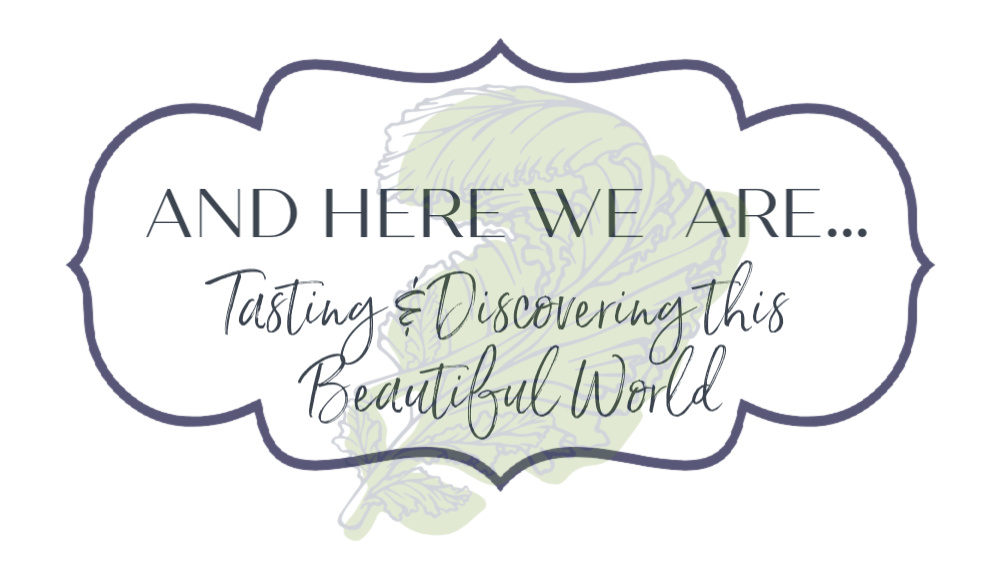Good morning! Today I have a guest post about expat life from one of my favorite blog writers. Her poignant, honest posts about life almost always make me cry. Diana is from the republic of Moldova, and has such a beautiful way of describing life and the ways we see the world differently through the lens of the culture we are born into. I think you will enjoy reading her thoughts on her expat life in the USA.
“So what was the biggest culture shock you experienced when you came to America?” is a frequently asked question that I always I struggle to answer. During my freshman and and sophomore year I would shrug my shoulders and smile, not even knowing where to begin. Once I became a junior, I decided I needed to have an answer. So I would reply, grinning, “peanut butter and jelly sandwiches.”
It took me almost ten years to emotionally and intellectually process what happened to my psyche when I first came to the US at the young age of eighteen. Now my answer is, “Everything– everything was a huge cultural shock. ” As I’m struggling to explain what I mean, memories start flooding in.
Take something as universal as running water that seems to be such a necessity here in the U.S. A necessity I had to give up pretty early on in my childhood.
Then
There is me at three years old getting a bath. I am screaming. My dad is holding a hand towel over my eyes while mamma is shampooing my stringy brown hair with fast gentle moves. Although I hate water, I love the two of them doting on me, so I don’t fight; I just scream while holding my father’s strong hand.
By the time I was ready to embrace taking showers and being a big kid, the water stopped running in our house, as Moldova struggled to get their collapsed economy off the ground. The age of six finds me carrying a small white plastic bucket of water home from the neighborhood well. My brother is carrying two much bigger, heavier ones. He walks fast and some of the water splashes on his bare feet. He urges me to keep up while I lag behind, staring at the cute goats and large horses by the green meadow in front of our house.
It’s bath night. We are heating a heavy cauldron of water on the little clay stove in our yard. I’m in charge of feeding the fire with sticks, which I do while I am rubbing my dog’s belly, who stands faithfully by my side unless I am off at school. My clothes smell like sweet smoke from the walnut wood, and I have a slice of bread warming on the stove next to the cauldron. The bathroom still has a bathtub and the shower head, reminders of a different era. Instead, we bathe in a small metal basin which we place inside the bathtub. I can fit in it if I sit down and hug my legs together. Bathing in a tiny basin is an art we mastered well.
So is the art of washing clothes by hand. I can still see my mama scrubbing my jeans with a thick brush and soapy rain water (the best kind of water) while they are draped over the fence. Our ducks are all about her feet pecking the water dripping on her toes. I’m watching her, helpless after another failed attempt to do this myself. She is teaching me her technique and I’m moving my hands in the air trying to mimic strokes that would get the stubborn dark stains off the bottom of my jeans. We don’t have paved roads in the village so rain means lots and lots of mud.
Now
To this day, even after living in the US for ten years, my showers are very quick. As the hot water pounds over the nape of my neck and my eyes are closed I feel my dad’s firm hand gently holding a towel over my face. I feel guilty that I have the luxury of being able to take a shower any time I want. I don’t feel like I’ve earned the water I am using. A luxury that a huge part of the world has no access to. My eighty-six year old grandma still carries her own water from the town well and thinks nothing of it.
“What do you mean you didn’t take showers every day growing up?” an American friend once asked me.
“Well we bathed in a small basin twice a week since we didn’t have running water.” I replied, feeling slightly defensive at the horrified tone.
“I could never do that. I am so sorry you had to go through that.”
Its funny how much we underestimate our adaptability. Of course we can do that. We have done that for millennia. My childhood was hard in some ways but it wasn’t due to our lack of running water, lack electricity, or the many chores required to take care of our little farm. It was hard because I had to watch my parent’s struggle to understand what happened to the world they grew up in. It was hard because I had to watch my dad go to war and come back different. It was hard because I had to watch my mama crying when she thought I couldn’t see her. The political realities crept in everywhere, affecting my family’s farm life–but my parents always tried to pick up the pieces and build a shelter where my brother and I felt safe, even when war was waging in the North side of the country. While I carried my little bucket of water, with my brother urging me not to lag behind…
Its difficult to explain all this in a conversation. In the past I’ve chosen to make light of the question, shrug it off, or even be honest and give a heart felt response. No matter how I choose to respond it feels inadequate. Life in Moldova has changed in the last few years. My parents now have running water in their newly built bathroom. They got rid of the old rusty shower head but they kept our old chipped bathtub, which still sits majestically on its bed of white washed cement and baby blue tiles.
Diana was born in the republic of Moldova six years before the fall of the Soviet Union. She left home at eighteen to become a student at Gutenberg College, a small liberal arts college in Eugene Oregon. During her senior year she met her future husband and her plans to go home took a turn. Diana is now finishing her Masters Degree in Holistic Nutrition while also cooking a storm for her 26+ housemates and writing about food, health, nutrition, and just life and her journey on her blog The Kitchen Rag.
Thank you so much for sharing your experiences with us, Diana!
Is there something you have taken for granted about life in your home country, which you were surprised to learn is not a common privilege in countries you have visited? Or vice-versa?


I loved this!!! We take so much for granted, and often only realize it when we lose it. I am grateful for electricity and running water, which we occasionally don’t have. Then I think of how much I love my bed, and remember that many of my friends sleep on a mat on the hard floor, with only a pillow. They are grateful for the pillow and mat, and grateful for a roof that doesn’t leak. We take internet connection for granted and complain when it is slow or down. Our friends are rejoicing because they can now go to a spot 2km from home and get a cell phone signal! We rejoice with them! 🙂
I love your story so much, Diana. You are the beautiful person you are because of this. We need some of that beauty in this country, don’t you think? We take too much for granted. Thank you for sharing.
Thanks for sharing your story with us. I agree with you about people who claim they “can’t do without”. I heard some young people the other day saying that they can’t do without the internet and their smart phones. Of course they could do without them and tons of other things as well. My grandma used to say ‘what this country needs is another depression’. Then you see all of the many things we can do without. All we really need is food, clothing & shelter. Those are the only real currencies. Enjoy your peanut butter and jelly sandwiches!
“All we really need is food, clothing & shelter. Those are the only real currencies.” – Exactly!
I find is fascinating to learn about people who have lived in such different environments. I remember being shocked when my Belarussian sister in law told me that when she was growing up they only had hot water on weekends, as it was centrally sourced. She lived in an apartment, so heading to the well wasn’t such an option.
It is hard to answer how countries are different when asked though! Thanks for sharing Diana, I enjoyed finding your blog.
I have never met many ex-pats where I live (eastern N.C.). But I read a lot and when I watch TV, I watch something that will teach me something. What I have learned is that we Americans, as a general, (general, please people, not everyone) population haven’t a clue about what is really important in life. We just want the next new thing.